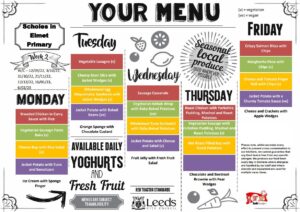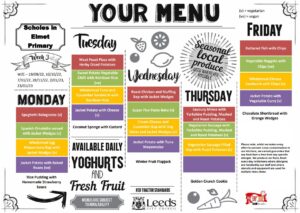This week’s message (Friday 16 September 2022)
Posted on 16 September 2022 by Mr Roundtree
This week’s message comes from Mr Wilks, who’s our Science and Foundation Subjects Leader. In this message, Mr Wilks introduces your child’s current topic…
What do we mean by topics?
Topics are the vehicle for delivering much of the learning in the foundation subjects (eg Art, History, Geography). Each half-termly topic has a driving subject – the main focus for teaching pupils knowledge and skills.
There are opportunities for enrichment through other subjects. For example, learning in an art topic may be enriched by geography learning about where an artist was born and lived.
Read more about the intent, implementation and impact of our topics.
What is this half-term’s topic?
This half-term, we’re historians. We’ll develop our understanding of the past, both in Britain and the wider world.
Each phase has age-related specific knowledge, skills and vocabulary: see pages 27 and 28 of our Curriculum Statement.
Each phase also has key historical concepts which will feature within most lessons. These historical concepts are themes that are revisited, strengthened and deepened during your child’s journey through the history curriculum. See page 24 of the Curriculum Statement.
Years 1 and 2
In this topic, children learn about a significant British historical event: The Great Fire of London.
Children will learn about life at the time of the Great Fire of London. They’ll learn where the fire started and how it spread so quickly and the innovative ways that it was extinguished. Importantly, they’ll learn about the different sources of evidence that have helped us answer these questions, including Samuel Pepys’ diary. Finally, they’ll learn about the significant changes that occurred as a result of the fire, such as legal changes about the way houses were built and the beginning of a fire service in London.
The key concept that children will learn about in this history topic is innovation.
Years 3 and 4
In this topic, children learn about Ancient Greece.
Children begin by sequencing periods of British history and seeing where the ‘golden-age’ of the Ancient Greek civilisation sits alongside. They’ll then learn about two contrasting city states: Athens and Sparta. Children will learn about the type of government these states had and what the lives of the people living there were like. They’ll then debate which city state was the best. Next, they’ll focus in on the influence that Athens has had on the world: democracy, mathematics, philosophy, literature, culture… Finally, they’ll learn about how the civilisation ended.
The key concepts for this topic are civilisation, government and innovation.
Years 5 and 6
In this topic, children learn about Stone Age to Iron Age Britain and contrast it with Ancient Egypt.
They begin by looking at and creating timelines which sequence the periods of British history and also placing Ancient Egypt on this timeline. They’ll learn about the advances and innovations that occurred during the New Stone Age, Bronze Age and Iron Age. They’ll learn about and understand that the sources of evidence we have are limited to archaeological evidence. They’ll then learn about the Ancient Egyptian civilisation and contrast this with what was happening in Britain at the same time – it’s a stark contrast!
The key concepts for this topic are innovation and civilisation.
How can you help?
Talk to your child about what they have been learning in class. The class news pages are a good place to go to find out more about what the children are doing.
Find some books from the library which match what your child is learning. I’m sure there’ll be plenty of books about the history your child will be learning about.
Watch television shows about history. Horrible Histories is great (regardless of your age!).
The BBC Bitesize history webpages have been revamped this summer and have lots of information about the history being covered this half-term.
If it’s a rainy weekend and you’re looking for something to do, why not spend a morning or afternoon in a museum? A visit to Leeds City Museum (next to Millennium Square) would be great for all children but especially for Y3,4 and Y5,6 children as it has some Ancient Greek and Ancient Egyptian exhibits, including Nesyamum, the 3,000 year old Leeds mummy!
London’s a bit far for a rainy weekend but the Fire of London website is great and will support and deepen children’s learning.
Summer competition winners!
Posted on 14 September 2022 by Miss Hague
Check out these happy and healthy faces that people spotted during the summer – don’t they make you smile?
Our Reception winner
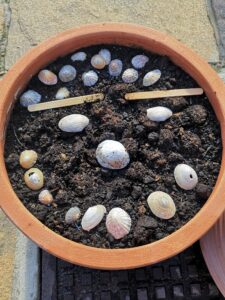
Our Y1 winner
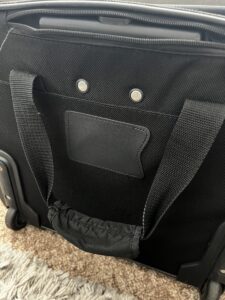
Our Year 2 winner

Our Y3,4 winner
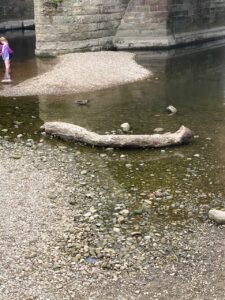
Our Y5,6 winner

Thanks to everyone who entered – they were all amazing. All entries will be displayed in school very soon. Hopefully they’ll make everyone smile who passes them.
This week’s message (Friday 09 September 2022)
Posted on 09 September 2022 by Mr Roundtree
We’re sad to note the death of HM Queen Elizabeth II. She demonstrated and represented important values and behaviours. In school today, we have marked this historic moment with a special assembly and teachers have followed this up with a review and reflection in class.
Our first weekly message of the year continues with some important information for the year ahead at Scholes (Elmet) Primary School…
Dates for the year
Key dates for the school year are in our school calendar. We’ve prepared this list for you to print out and have ready to check, too.
Support your child at home
Like last year, we’re hosting a series of Zoom presentations to help you support your child’s learning at home – the first one is this Monday.
The invitation is open to all parents and carers across Sphere Federation, although we’ve indicated if the session might be more appropriate for particular age ranges. The full list of presentations are:
- Phonics and early reading: 12 September 2022
- Story telling: 19 September 2022 (A Reception teacher here at Scholes will read a story over Zoom for your child and you to enjoy – the session is ideal for children in Reception, but children in Year 1 and 2 are welcome to join, too.)
- Number (KS1): 03 October 2022
- Number (KS2): 10 October 2022
- Topic: 07 November 2022
- Reading and Writing: 14 November 2022
- Online safety: 28 November 2022
- Key Stage 2 SATs: 09 January 2023 (This one is mainly for parents of Y6 children.)
- Key Stage 1 SATs: 27 February 2023 (This one is mainly for parents of Y2 children.)
- Reception to Year 1 transition: 19 June 2023 (This one is for parents of Reception children.)
All the sessions are at 6pm on Mondays and should last around 30 minutes.
If you’re interested in attending any of these Zoom workshops, please either send us a message on the School Gateway app or email the school office. We’ll then email the Zoom joining details out to all those who have expressed an interest.
Homework
Your child’s first homework task is published today.
Homework is an important part of education and gives you a chance to support your child and find out what they’ve been learning. This doesn’t need to be sitting at home with a stack of worksheets or creating an elaborate project: quality time talking to your child and practising basic skills is enough.
Today, we’ve given each child a new homework book. The book is for your child to practise spellings, writing, times tables and number facts. It doesn’t need to be sent back to school.
This homework guide sets out what we expect children to do and why. Reading, spellings, times tables and number facts are essential for all children to be confident with. The focus of your support at home should be ideally around these areas. Your comments in the Reading Record book (at least once a week) are really helpful for your child’s teacher.
As always, contact school if you have any questions or concerns.
Children settled into the new school year really well this week. It’s likely they’ll feel tired after a busy week back. Have a restful, happy and healthy weekend.
Lunch menus
Posted on 05 September 2022 by Mrs Latham
Here are the lunch menus until February 2023. Children will be asked to choose each morning, if they are having a school lunch. Have a look through together so they are familiar with the choices.
Our annual survey 2022
Posted on 18 August 2022 by Mr Roundtree
Every year, we invite you to complete an annual survey of parents and carers. Thank you to the 65 people who completed this year’s survey.
Most of the questions we asked were based on those that Ofsted use for their Parent View. This gives you the chance to tell Ofsted what you think about your child’s school, from the quality of teaching to dealing with bullying and poor behaviour.
We’re delighted that the statements prompted very good responses: 100% of those who expressed an opinion responded positively to the following three questions:
- Is your child happy at school?
- Does your child feel safe at school?
- Does Scholes (Elmet) Primary make sure its pupils are well-behaved?
Typically, at least 97% of those who expressed an opinion responded positively to the remaining questions, including:
- Would you recommend this school to another parent?
- Is there a good range of subjects available to your child?
- Does Scholes (Elmet) let you know how your child is doing?
We asked if you’re aware of bullying at the school. The majority of respondents were not aware. However, there was a minority who said they were. Our definition of bullying is Several Times On Purpose and our solution is Start Telling Other People. Please do make sure you alert us about any concerns you may have.
We asked if you’ve ever had to raise a concern. We’re pleased that the vast majority who had raised something replied that it was dealt with well – ‘I felt listened to and happy with the outcomes’ and ‘Instantly responded and issues dealt with appropriately’ were typical comments. As always, please do make sure you raise concerns – your child’s class teacher is usually around at the end of the day, and Miss Hague is nearly always at the school gate each day.
The last question was an open-ended one: we invited any comments you may have. There were 18 comments here, and the majority of these were positive – thank you.
Really love this school, as does our daughter. Very pleased our youngest daughter will be starting Nursery in September, too. All staff members are friendly and approachable. A good and helpful amount of feedback is given throughout the year, and lots of activities after school are offered.
The school clearly prioritises developing the whole child, not purely pushing for academic success. My girls both love coming to school and enjoy a varied and engaging curriculum. Communication with parents is outstanding (regular learning updates, parents evenings, weekly emails, Zoom workshops and easy access to communication with the class teacher). Thank you all for your continual hard work.
We’re keen to keep improving so we’ll review the suggestions that were made. In fact, we’ve already acted on two comments about uniform:
- ‘I think that people should be made (as far as school can) to stick to the uniform policy’ – We agree. We’ve updated the uniform policy with an extra page that sets out very clear expectations – please check this out.
- ‘I dislike the “ideally with logo” comment on the uniform policy, it has an underlying expectation that you should be spending £12+ on the cardigans and T-shirts when supermarket alternatives are so much cheaper.’ – Again, we agree. We’ve removed that phrase to avoid disadvantaging any families.
Thank you to those parents / carers who completed the survey.
As always, please contact us with any questions, comments and concerns during the school year.
Have you entered our Summer competition yet?
Posted on 06 August 2022 by Mr Roundtree
Stay alert to happy and healthy faces all around you…
We want to see your pics of hidden smiley faces in your surroundings: a walk in woods or a play on the beach might include creating a smiley face, for example! Here’s our suggestion (look for the smiling face!)…
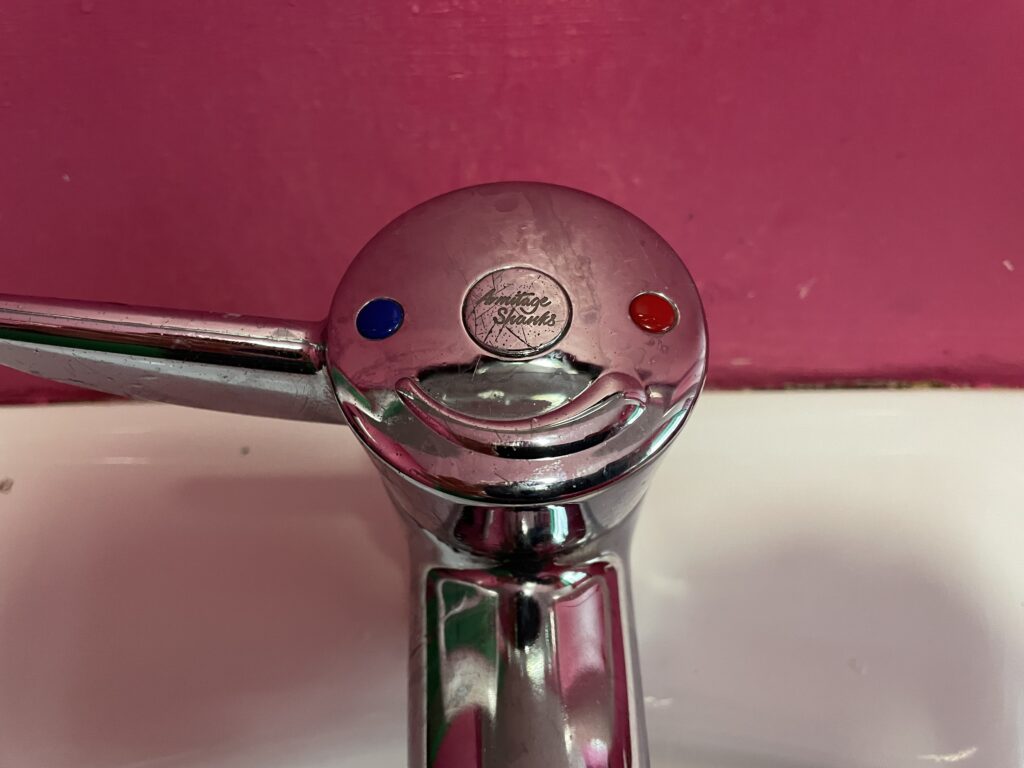
…but we’re sure you can do better!
Look out for things around you that show a hidden smiley face – a happy and healthy face – or encourage your child to create their own from things around them (pebbles, leaves, Lego…). (Just avoid obvious and intended smiling faces like the ones featured in the Breeze list of summer dates from last week’s message – they’re too easy to spot!)
To enter, email your pics to scholesoffice@spherefederation.org by Friday 09 September. Enter ‘Summer competition’ as the subject.
All entries will be displayed in a happy and healthy display in school, and there are prizes for our favourites.
Our Summer competition
Posted on 25 July 2022 by Mr Roundtree
We’re a happy and healthy place to learn!
Over the Summer weeks, we want you all at home to stay alert to happy and healthy faces all around you… and take a pic of any hidden smiley faces in your surroundings: a day out at the beach might include creating a smiley face, for example! Here’s our suggestion (look for the smiling face!)…

…but we’re sure you can do better!
Look out for things around you that show a hidden smiley face – a happy and healthy face – or encourage your child to create their own from things around them (pebbles, leaves, Lego…). (Just avoid obvious and intended smiling faces like the ones featured in the Breeze list of summer dates from last week’s message – they’re too easy to spot!)
To enter, email your pics to scholesoffice@spherefederation.org by Friday 09 September. Enter ‘Summer competition’ as the subject.
All entries will be displayed in a happy and healthy display in school, and there are prizes for our favourites.
This week’s message part 2 (Friday 22 July 2022)
Posted on 22 July 2022 by Mr Roundtree
The bulk of our last message of the school year comes from Miss Hague. Before that, we’ve an updated uniform policy. Also, we’ve been asked by Leeds City Council to provide you with some important information…
Uniform
Most parents and carers stock up on fresh uniform over the summer holiday, so we want to let you know about our updated policy now.
This year, we’ve been trialling something we introduced in Covid times: wearing PE kit on PE days. Overall, we like this: it increases time for PE (no changing into kit) and there’s less lost property. However, we’ve seen some deviation from our uniform policy on PE days with lots of branded tops and shorts sneaking in. Take a look at our helpful guide for what is acceptable and what isn’t. We hope you’ll agree that the changes should actually save you money and be much more convenient for you.
Prevent
This letter is to help raise your awareness of the dangers of radicalisation and to let you know where to get more information, advice and support if you do have any concerns. This leaflet provides a summary about the Prevent programme and how, through the ACT Early website and Support Line, those who are vulnerable to radicalisation can get the help they may need.
And now over to Miss Hague…
After navigating our way through a global pandemic, the weather threw another challenge our way this week! Not that you’d know it as I sit writing this (grey, rainy and very British looking weather outside), but this week saw some of the hottest temperatures both outside and in school!
Our children were as resilient as ever but even they were beginning to ‘fade’ by lunchtime on Tuesday. Many thanks for working with us to keep everyone happy and healthy in extreme conditions.
This year seems to have gone by in a flash. It’s felt a bit more ‘normal’ with many Covid restrictions lifting at various times. Easter was a highlight as we invited our first group of parents (Y3,4) back into school in almost two years. Since then, we’ve had parents meetings for our new starters, a Year
5,6 production and an end of year disco! We’re starting to populate our school calendar lots of opportunities for you to come into school and get involved.
The end of a school year inevitably brings with it some ‘goodbyes’. Today, we say goodbye to our amazing Year 6 children – they are more than ready to start their journey at high school. We send them off with our very best wishes.
This year sees a fairly large movement in staff, too. We say goodbye to…
- Mr Freeman, who is taking up a role at St James’
- Miss Harker, who starts teaching at another Leeds school in September
- Mr Gathercole, who is having a career change
- Mrs Ravenscroft, who retires after 25 years of working at Scholes (Elmet) Primary
- Miss McAleer, who begins her journey towards a career in teaching
- Miss Wright, who takes up her first teaching role
- Miss Ward, who’s also taking up a role at St James’
We wish all of our amazing staff well as they move on from Scholes. We’ll miss them all!
With departures come arrivals. We say hello to:
- Mr Robson, who’s going to teach in Y5,6
- Miss Paterson, who’ll be teaching in Y3,4
- Miss Young, our new teacher in Y2
- Mr Nash, who’ll take up a role as a teaching assistant in Y5,6 TA
- Mrs Flynn, who returns to us from a meternity leave and a year teaching at St James’
Lots of work is going on over the summer! You’ll definitely spot one change as we’re having the entrance/exit to school made wider. Hopefully, that will avoid the bottle-neck we often experience. We’re also having the room used for out of school provision refurbished. This area will be called The Hub and will have a fully-equipped kitchen for children to participate in more cooking activities.
We’re also having our Key Stage 1 playground extended to give our children more space to safely play. The garden area will be re-located so we’ll still be able to grow some veggies!
Have a fabulous summer – stay happy and healthy and remember to enter our summer competition. We’ll see you back in school on Tuesday 05 September.
This week’s message part 1 (Tuesday 19 July 2022)
Posted on 19 July 2022 by Mr Roundtree
It’s the last week of term. This week, we’ve two messages.
This first one kicks off with a thank you to all of you who worked with us, sending your child into school despite the extreme temperatures. We worked hard to ensure the children remained as comfortable as possible – on the whole, I think we succeeded!
The rest of this message has contents that come from other organisation, but which you may find helpful, especially the first item…
Using A&E?
Leeds Teaching Hospitals are experiencing extreme demand for services. They’re seeing increasing visits to paediatric emergency department with needs that may be better met in other ways.
With consistent, accurate and trustworthy healthcare advice, the West Yorkshire Healthier Together website is available to support families to decide if a visit to A&E is appropriate.
The information on the site has been reviewed by local paediatricians, GPs and clinicians across the region to ensure it aligns with current practices and procedures.
You can use the quick links, search bar, or menus to find clear advice with easy to use traffic light guide, red, amber, green found in the parents/carers section. This will help to identify when, where, and how you should seek help for your poorly baby or child.
Parent and carers can also look through the site for practical guidance such as ‘should my child go to school’.
Music summer club
Leeds City Council and ArtForms are hosting free music summer clubs this August, with a range of music activities for children in Leeds aged 8 and above.
The sessions will take place between 08 and 10 August at Horsforth School. Read more.
Child friendly Leeds
This July marks the tenth year since the launch of Child Friendly Leeds. To mark the event, you and your child might want to attend the Our Leeds Wishes Display | Leeds Inspired this weekend.
Look out for our final message of the school on Friday.
Extreme temperatures - an update
Posted on 18 July 2022 by Mrs Quirk
We’ve coped well today in the heat, helped no doubt by moving classrooms, cool clothing and staying in at break times.
However, by 2.00pm, it was stifling in places around school – uncomfortable to say the least. The temperature at around this time was the temperature predicted for about 11.00am tomorrow.
The peak temperature of 38 degrees is predicted between 2.00pm and 4.00pm. Based on this, we’re suggesting a pick-up time of 1.30pm tomorrow, Tuesday 19 July, if you can.
If you’re unable to collect your child at this time, there will be staff to support and supervise in school. We’ll use the three air conditioned spaces to keep the children as comfortable as possible until you can collect.
Many thanks for your support.

